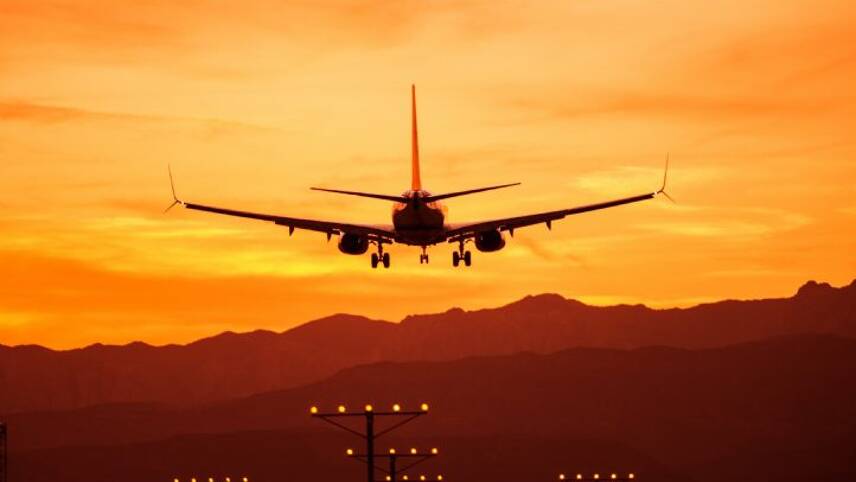Register for free and continue reading
Join our growing army of changemakers and get unlimited access to our premium content

Wizz Air has entered into a new agreement with Neste to purchase and use SAFs from 2025 onwards. The agreement gives the airline the purchasing option of more than 36,000 tonnes of SAFs annually.
Organisations backing SAFs claim that the solution can reduce life-cycle emissions by up to 80% compared to traditional jet fuel. However, most airlines currently only use it in small proportions in blends – partly due to a lack of supply and partly because current international regulations limit biofuel blends to 50%.
Wizz Air’s executive vice president Ian Malin said: “At Wizz Air, we continue to invest in innovative technology and believe that SAF is a key part of the solution for decarbonizing the aviation industry. The partnership with Neste, the world’s leading producer of SAF, reaffirms our progress in reducing our carbon emissions intensity, which is already one of the lowest in the world.
“Working together with Neste, we will drive the adoption of SAF throughout our network, paving the way to a more sustainable future for aviation,”
The new agreement builds on the airline’s commitment to reduce carbon emissions intensity per passenger kilometre by 25% by 2030 and reach net-zero by 2050.
Heathrow’s SAF target
The announcement comes as the UK’s largest airport has called for more Government support to help increase the uptake of SAFs.
Heathrow Airport announced this week that it was aiming to triple its SAF usage this year, from 0.5% to 1.5%. However, the company’s chief executive has called for more legislative support, as reported by the BBC.
In 2021, Heathrow Airport incorporated aviation fuel made from waste oils and fats for the first time. The SAFs are HEFA (Hydrotreated Esters and Fatty Acids) and consist of waste vegetable oils, waste oils and fats. According to Neste, its SAFs can reduce emissions by up to 80% compared to fossil fuel jet use over the life cycle.
The SAF used was equivalent to fuelling 5-10 short-haul flights, but Heathrow stated at the time that it could act as a base to establish proof of concept that SAFs can be used on a commercial scale to reduce emissions.
The Airport has since updated its sustainability strategy, pledging a 15% reduction in carbon in absolute terms from flight emissions by 2030, against a 2030 baseline. The Airport states that it will increase the use of SAFs, improve the efficiency of aircraft and modernise airspace to reach the target. Electric aircraft are not mentioned and neither is capping growth in passenger numbers.
The Airport first unveiled its ‘Heathrow 2.0’ sustainability strategy in 2017, setting 2050 targets for zero-carbon operations and flights as well as zero-waste operations and 100% sustainable water consumption.
Under UK policy, the Government is proposing that airlines operating in the UK ensure that SAFs account for at least 10% of their fuel demand by 2030.
Boeing’s purchase
Last week, Boeing agreed to purchase 5.6 million gallons (21.2 million liters) of blended sustainable aviation fuel (SAF) produced by Neste, in a move that will more than double the company’s SAF procurement from last year.
“We are demonstrating our commitment to reduce our carbon footprint and catalyse the SAF industry,” Boeing’s vice president of environmental sustainability Sheila Remes said.
“This SAF procurement makes up 25% of Boeing’s total jet fuel needs for last year including our production, delivery, Boeing ecoDemonstrator, and Dreamlifter flights, and we aim to increase that portion in the years to come.”
Boeing claims that the SAFs meet or exceed the safety and technical specifications it is subjected to and also has a “drop-in” capability so it can be blended directly with petroleum jet fuel. The new agreements will see SAFs blended with conventional jet fuel at a 30/70 ratio.
These criteria are based on internationally recognized sustainability standards, such as those established by the Roundtable on Sustainable Biomaterials.
Boeing is notably planning to debut commercial aircraft capable of using 100% biofuel by 2030. Commercial planes at present can only use blends of up to 50%. A Boeing spokesperson told edie that SAF procurement made up 25% of Boeing’s total jet fuel needs for last year.
Boeing is a member of the Sustainable Aviation Buyers Alliance (SABA) which is being operated by the Environmental Defence Fund and Rocky Mountain Institute, with support for the Climate Group, best known for schemes such as RE100 and EV100.


It would be interesting to have some information on the chemistry of these materials.
Richard Phillips